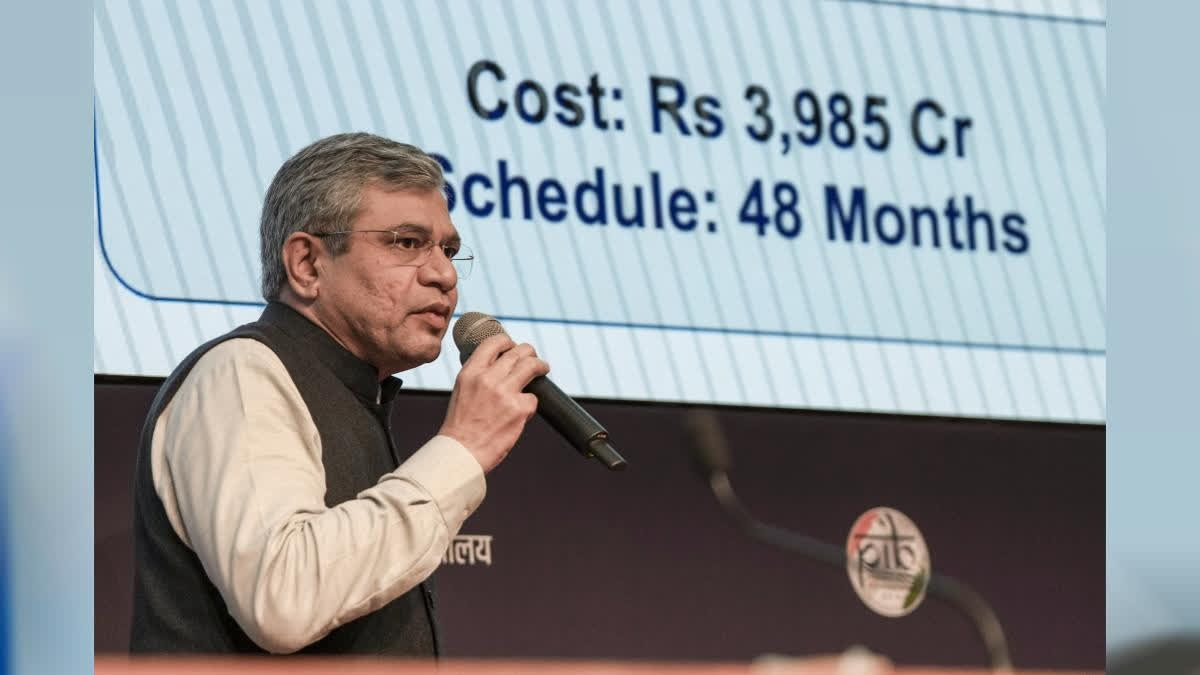New Delhi: Union Minister Ashwini Vaishnaw on Thursday said that Prime Minister Narendra Modi has approved the setup of the 8th Central Pay Commission for all employees of the Central government.
During a media briefing at the National Media Centre here, the Union Minister said, “PM Narendra Modi has approved the setup of the 8th Central Pay Commission for all employees of the Central government.”
Since 1947, seven Pay Commissions have been constituted, with the last one implemented in 2016. As the 7th Pay Commission’s term concludes in 2026, initiating the process in 2025 ensures sufficient time to receive and review recommendations before its completion, Vaishnaw informed.
As per government sources, around 50 lakh Central government employees, including defence personnel will be benefitted. About 65 lakh pensioners, including defence persons, will also see an uptick in their pensions, sources added.
In addition, about four lakh employees in Delhi will be benefited including defence and Delhi government servants. The 7th pay commission witnessed an expenditure increase of Rs one lakh crore for FY 2016-17. Now, this will help to provide a significant boost to consumption and economic growth as well as it will enhance the quality of life of government servants, sources added.
Dr M. Raghavaiah, General Secretary (NFIR) /Leader/ Staff Side/ NC(JCM) and Shiva Gopal Mishra, Secretary/ Staff Side/ NC(JCM), GS (AIRF) met Ashwini Vaishaw and thanked Prime Minister Narendra Modi for approving eighth pay commission
1st Pay Commission May 1946 - May 1947
● Chairman: Srinivasa Varadachariar
● Key Features:
- Focused on rationalizing the pay structure after India’s independence
- Introduced the concept of the “living wage.”
- Minimum salary: ₹55/month; maximum salary: ₹2,000/month
- Beneficiaries: Around 1.5 million employees.
2nd Pay Commission August 1957 - August 1959
● Chairman: Jaganath Das
● Key Features:
- Focused on balancing the economy and living costs
- Recommended the minimum wage of ₹80/month
- Introduced the “socialistic pattern of society.”
- Beneficiaries: Approximately 2.5 million employees
3rd Pay Commission April 1970 - March 1973
● Chairman: Raghubir Dayal
● Key Features:
- Recommended minimum pay of ₹185/month
- Emphasised salary parity between public and private sectors
- Addressed inequalities in the pay structure
- Beneficiaries: About 3 million employees.
4th Pay Commission September 1983 - December 1986
● Chairman: P.N. Singhal
● Key Features:
- Recommended a minimum salary of ₹750/month
- Focused on reducing disparities in salaries across ranks
- Introduced a performance-linked pay structure
- Beneficiaries: Over 3.5 million employees.
5th Pay Commission April 1994 - January 1997
● Chairman: Justice S. Ratnavel Pandian
● Key Features:
- Recommended a minimum pay of ₹2,550/month
- Suggested reducing the number of pay scales
- Focused on modernizing government offices.
- Beneficiaries: Around 4 million employees.
6th Pay Commission October 2006 - March 2008
● Chairman: Justice B.N. Srikrishna
● Key Features:
- Introduced Pay Bands and Grade Pay
- Minimum salary: ₹7,000/month; maximum salary: ₹80,000/month
- Emphasized performance-related incentives
- Beneficiaries: Nearly 6 million employees.
7th Pay Commission February 2014 - November 2016
● Chairman: Justice A.K. Mathur
● Key Features:
- Minimum pay raised to ₹18,000/month; maximum pay
- ₹2,50,000/month
- Recommended a new pay matrix instead of the grade pay system
- Focused on allowances and work-life balance
- Beneficiaries: Over 10 million (including pensioners)



